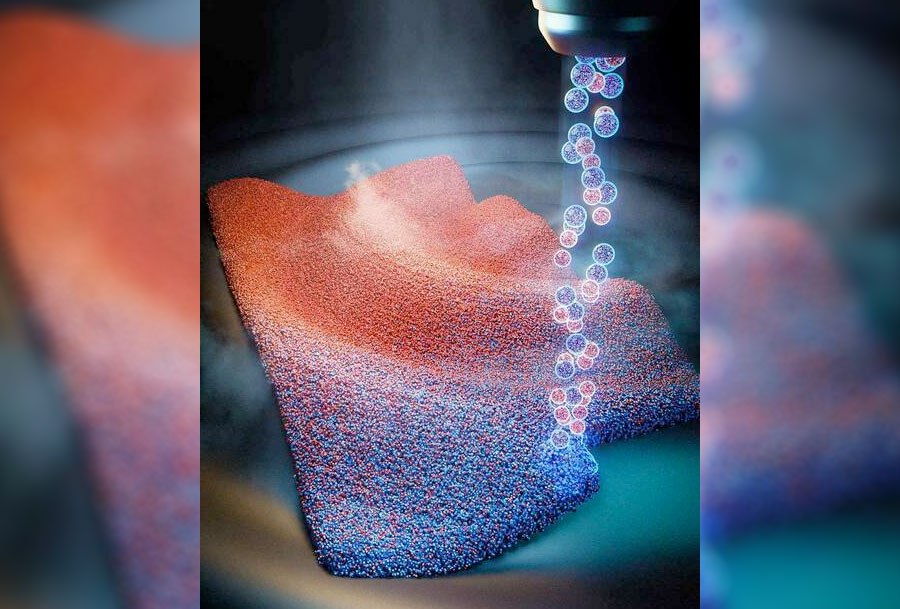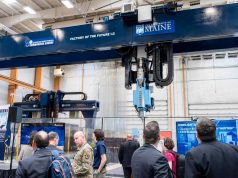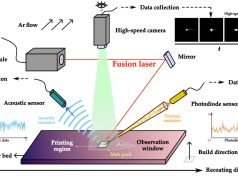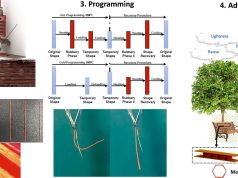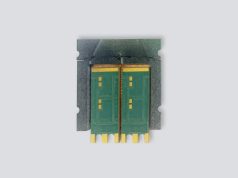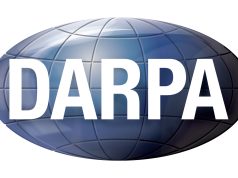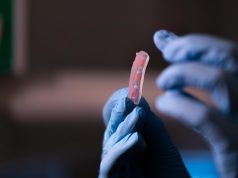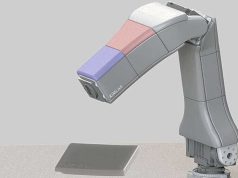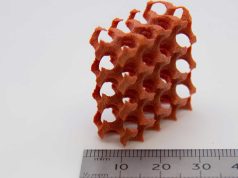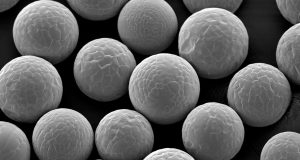Yanliang Zhang, associate professor of aerospace and mechanical engineering at the University of Notre Dame, has developed a breakthrough method for faster discovery and fabrication of new materials. His research on the subject is published in the journal Nature.
“It usually takes 10 to 20 years to discover a new material,” said Yanliang Zhang, associate professor of aerospace and mechanical engineering at the University of Notre Dame. “I thought if we could shorten that time to less than a year — or even a few months — it would be a game changer for the discovery and manufacturing of new materials.”
Zhang’s revolutionary 3D printing process allows materials to be created by mixing different aerosol inks of nanomaterials in a single print nozzle. This process, known as high-throughput combinatorial printing (HTCP), creates “material libraries” with thousands of unique compositions.
This approach not only accelerates material discovery, but also creates functionally graded materials that can be useful for biomedical applications. Zhang’s team has already identified a semiconductor material with outstanding thermoelectric properties, an important discovery for power generation and cooling applications.
As a next step, Zhang plans to use machine learning and artificial intelligence to further optimize the HTCP process.
“In the future, I hope to develop an autonomous and self-driving process for materials discovery and device manufacturing, so students in the lab can be free to focus on high-level thinking,” Zhang said.
Find out more about University of Notre Dame at nd.edu.
Subscribe to our Newsletter
3DPResso is a weekly newsletter that links to the most exciting global stories from the 3D printing and additive manufacturing industry.



